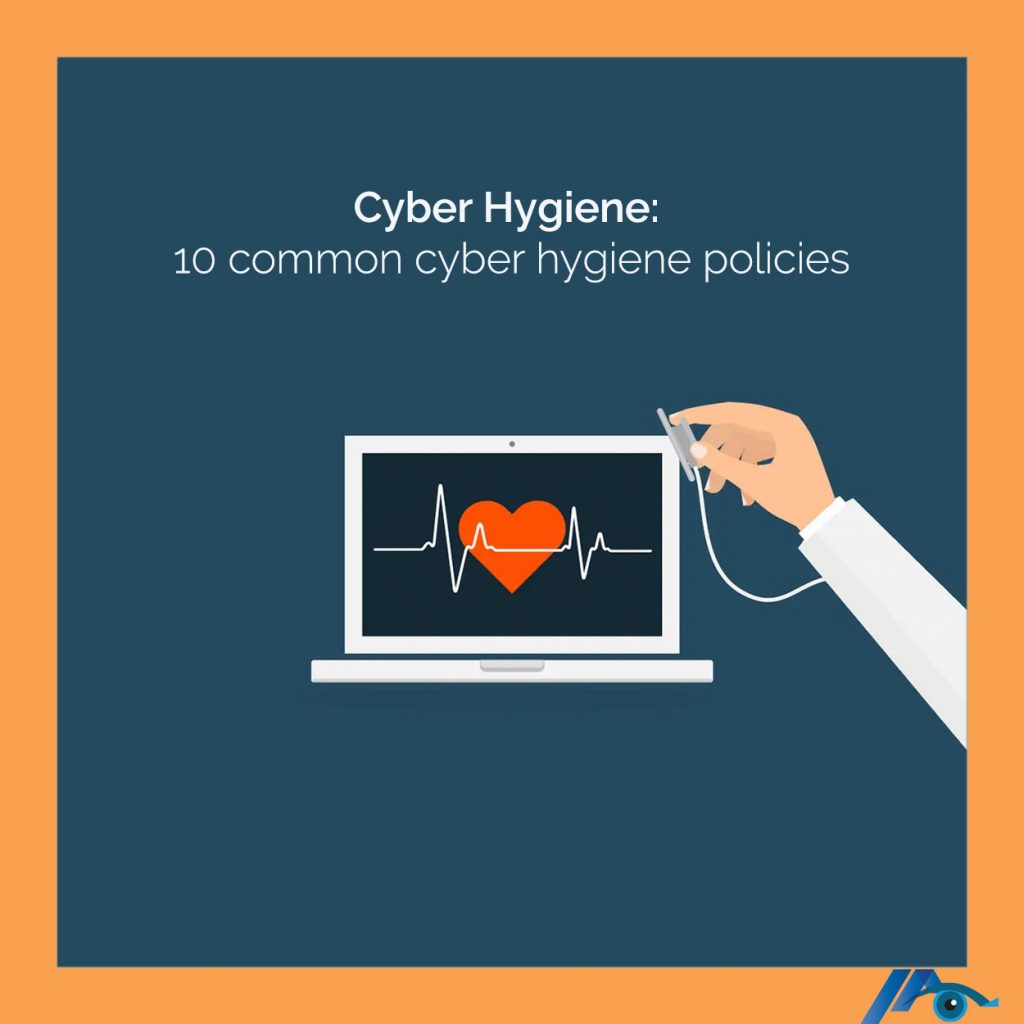
Cyber hygiene refers to the practices and measures individuals and organizations take to maintain and protect their digital health and security. It involves habits like using strong passwords, keeping software updated, avoiding suspicious links, and being cautious with personal information online. Just like personal hygiene keeps us healthy, cyber hygiene helps prevent cyber threats and keeps digital environments secure.
What are the common cyber hygiene problems?
Cyber hygiene problems often stem from lax security practices. These include using weak passwords, neglecting software updates, clicking on suspicious links or emails, sharing sensitive information carelessly, and not using security measures like antivirus software or firewalls. These issues make individuals and organizations vulnerable to cyber threats like hacking, malware, phishing, and data breaches.
Prepare a check-list for a cyber hygiene policy
While there are countless threats and various vulnerabilities, creating a cyber hygiene routine isn’t as difficult as it may seem. A few key practices implemented regularly can dramatically improve the security of any system.
Document All Current Equipment and Programs
All hardware, software, and online applications will need to be documented. Start by creating a list of these three components:
Hardware: Computers, connected devices (i.e. printers, fax machines), and mobile devices (i.e. smartphones, tablets).
Software: All programs, used by everyone on a particular network, are installed directly onto computers.
Applications: Web apps (i.e. Dropbox, Google Drive), applications on phones and tablets, and any other program that isn’t directly installed on devices.
Analyze the List of Equipment and Programs
After creating a comprehensive list of all cyber-facing components, you can begin to scrutinize the list and find vulnerabilities. Unused equipment should be wiped and disposed of properly. Software and apps that are not current should be updated and all user passwords should be changed. If the programs aren’t in regular use, they should be properly uninstalled. Certain software programs and apps should be chosen to be the dedicated choice for certain functions for all users. For instance, if both Google Drive and Dropbox are being used for file storage, one should be deemed primary and the other used as a backup or deleted.
Create A Common Cyber Hygiene Policy
The newly clarified network of devices and programs will need a common set of practices to maintain cyber hygiene. If there are multiple users, these practices should be documented into a set policy to be followed by all who have access to the network.
Here are typical items that should be included in a cyber hygiene policy:
- Password Changes: Complex passwords changed regularly can prevent many malicious activities and protect cyber security.
- Software Updates: Updating the software you use, or perhaps getting better versions should be a part of your regular hygienic review.
- Hardware Updates: Older computers and smartphones may need to be updated to maintain performance and prevent issues.
- Manage New Installs: Every new install should be done properly and documented to keep an updated inventory of all hardware and software.
- Limit Users: Only those who need admin-level access to programs should have access. Other users should have limited capabilities.
- Back Up Data: All data should be backed up to a secondary source (i.e. hard drive, cloud storage). This will ensure its safety in the event of a breach or malfunction.
- Employ a Cyber Security Framework: Businesses may want to review and implement a more advanced system (e.g. the NIST framework) to ensure security. Active firewalls on devices for added security
- Phising awareness: Be cautious of suspicious e-mails, links and messages
- E-waste Management: With the rapid pace of technological advancements, e-waste has become a significant concern. Proper e-waste management is essential to prevent environmental degradation and health hazards. Encouraging recycling programs, promoting responsible disposal of electronic devices, and supporting initiatives for sustainable technology usage are vital for Uganda’s environmental well-being.
- Responsible Social Media Usage: Social media has become a powerful tool for communication and information sharing. However, it also brings challenges such as online harassment, cyberbullying, and the spread of misinformation. Encouraging responsible social media usage, including promoting respectful online interactions, fact-checking information before sharing, and teaching critical thinking skills, can help mitigate these issues.
Miracle technologies is a comprehensive NYC based Managed IT Services for Business IT Infrastructures. Our platform is built upon years of unmatched experience at AT&T Labs Research and renowned Wall Street MSPs. We offers cloud support, data center support, C suite services, backbone servers support, security servers, 24/7 managed IT support and Business Continuity/Disaster Recovery.
Our team of IT Support Engineers have consistently overdelivered year after year. Our platform designs, consolidates, upgrades and maintains any IT infrastructure aspect of your business. Our qualified IT support engineers keep your cloud, data centers, vendors management, all backend servers, firewalls, routers, switches, emails, security, and end users devices optimized, while you focus on your core business.
Free IT Support Quotes/Sign Up
myteam@miracletechs.com
(646) 237-4472